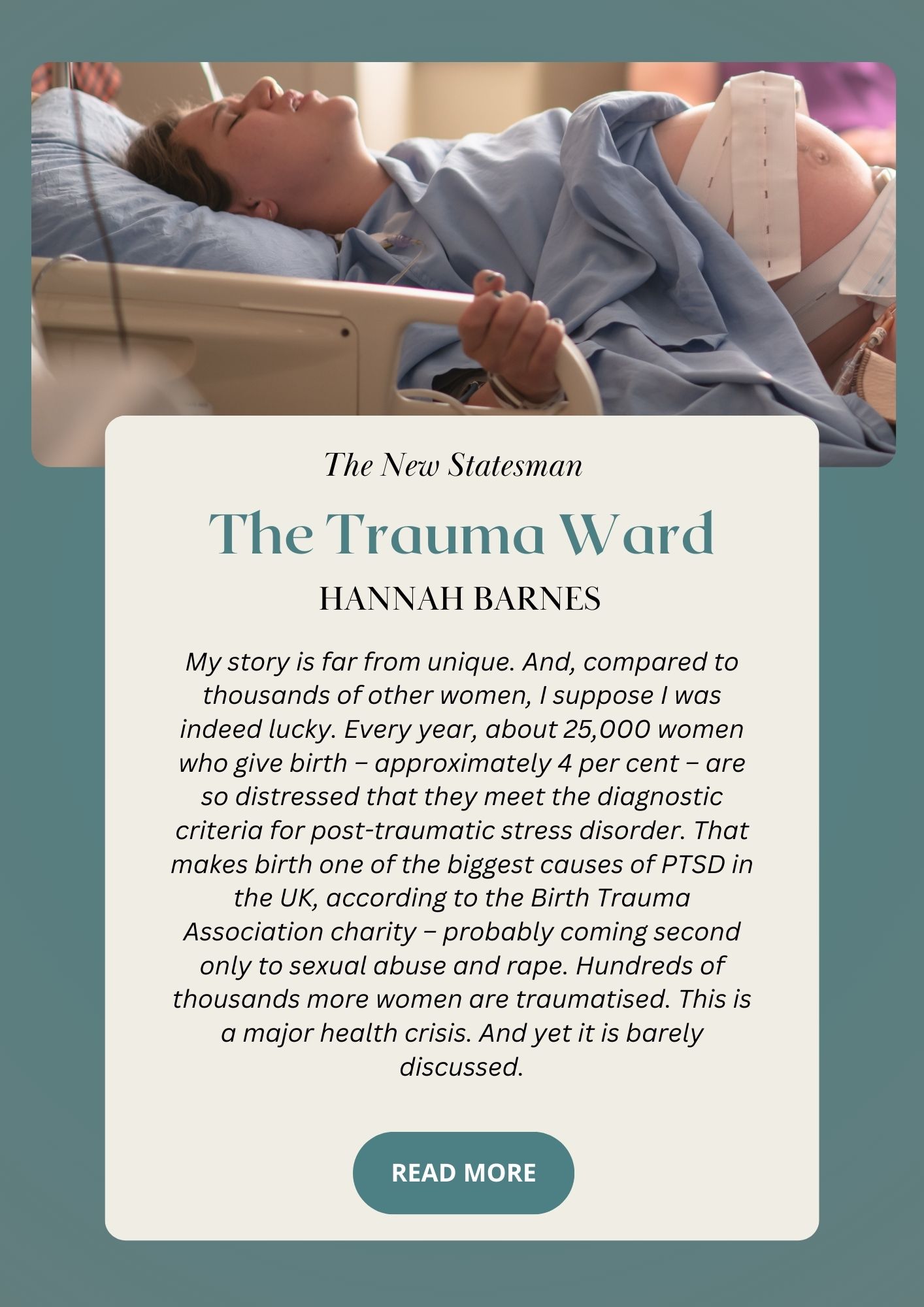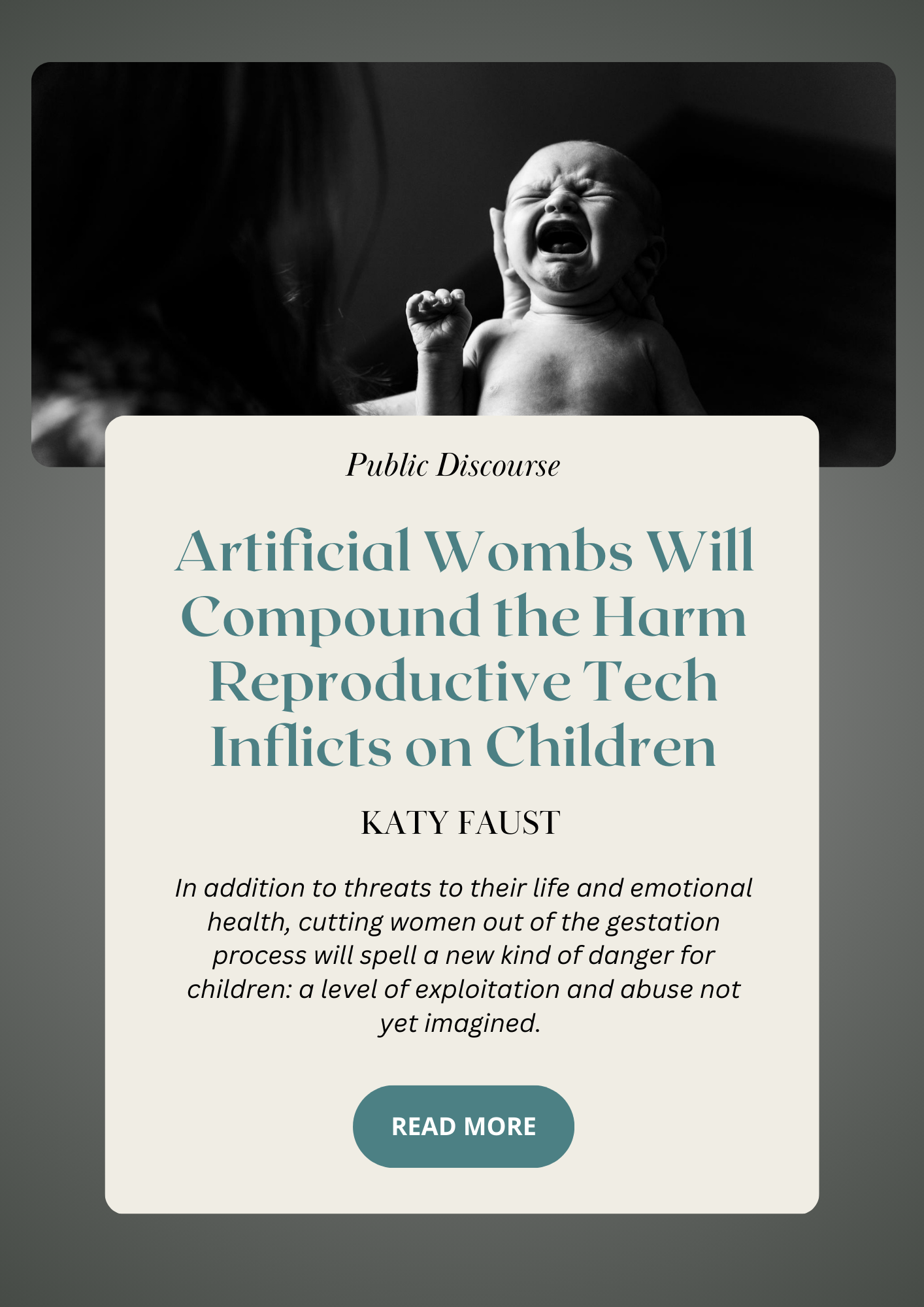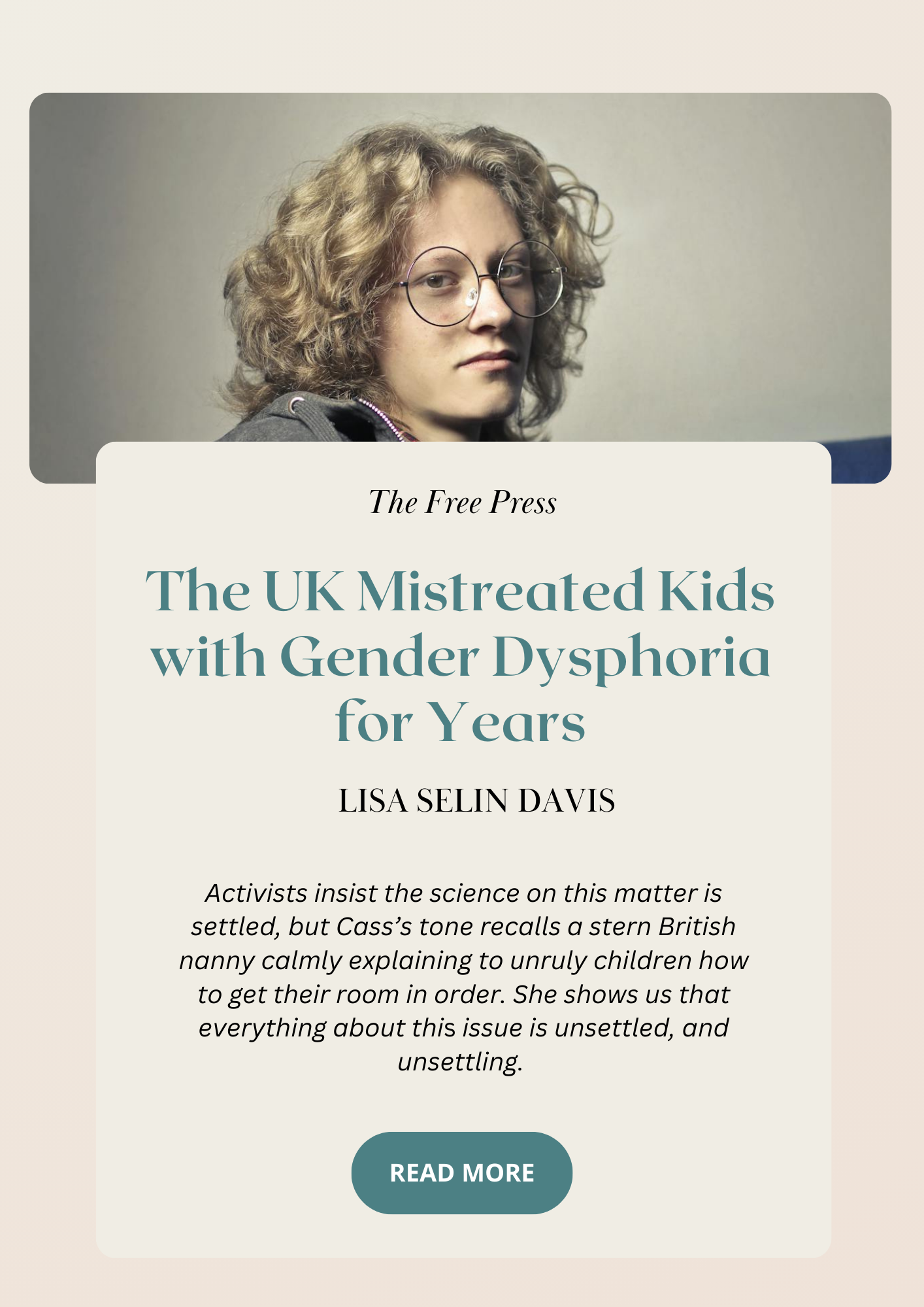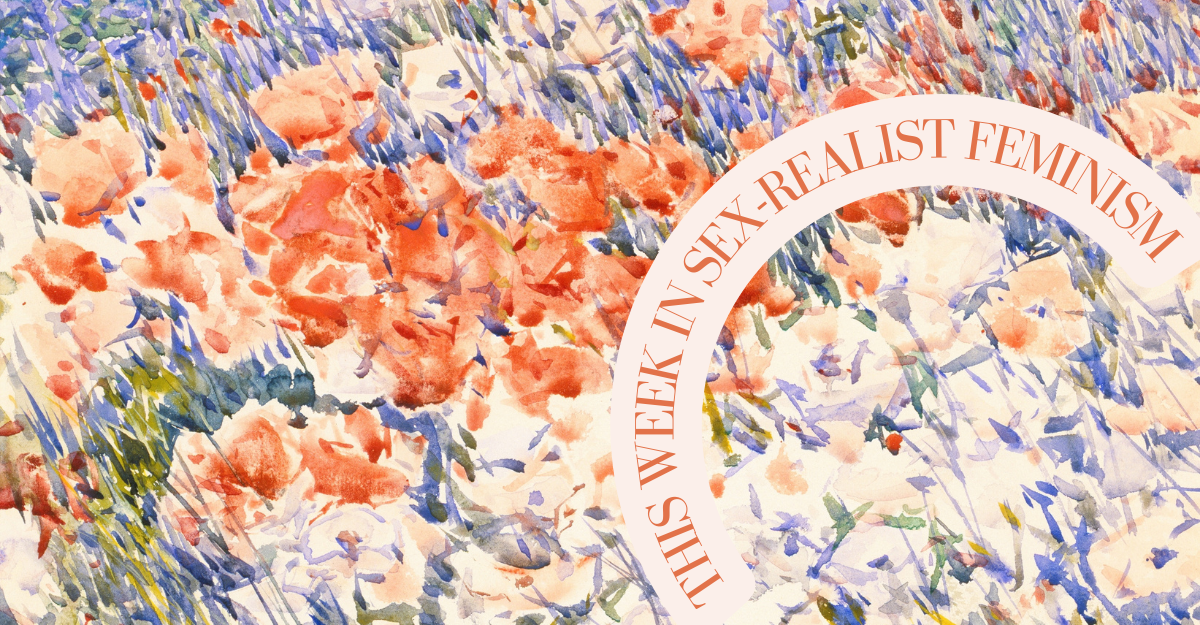Welcome to the weekly Fairer Disputations round-up: your one-stop shop for the best in sex-realist feminism. This week: Hannah Barnes on birth trauma, Katy Faust on artificial wombs, Lisa Selin Davis on the Cass Report, sex robots, TikTok, what featured author Helen Roy is reading—and more!
First up, we’ve got an essay from Hannah Barnes on birth trauma—and how it is all-too-often ignored by those who should have the best interests of women in mind.

Up next, Katy Faust argues that artificial wombs will only compound the harm done to the most vulnerable: children.

Our final highlighted post is a report on the groundbreaking Cass Review, which concluded that “gender care” has resulted in the mistreatment of children—and is already causing seismic shifts in UK “gender-affirming care.”
For a more in-depth look at the report, check out this piece at the New York Sun (free account required to read).

More Great Reads (and a Listen):
- Colleges are Baby Deserts. That Needs to Change, Leah Libresco Sargeant, DeseretNews
- Love in a Remotely-Controlled Climate, Nina Power, The Critic
- If Young Men Want ‘Traditional’ Gender Roles, We Need to Know Why, Kathleen Stock, The Times
- Study: Women and Girls Lead Decline in Youth Mental Health, Laurel Duggan, UnHerd
- Podcast: TikTok Culture, Katherine Dee and Louise Perry, Maiden Mother Matriarch
What I’m Reading: Helen Roy

I am a re-reader. What I’m reading this week, I’ve read before, because each time, another deep insight, especially about the emptiness of the modern, materialist sexual ethic, reveals itself. Poet Sally Read wrote the spiritual memoir Night’s Bright Darkness: A Modern Conversion Story (Ignatius Press, 2016) about her journey from cradle atheist to committed Catholic.
I’m most struck by the instigating actors of her conversion: friends. While finding playmates for her daughter, Read came to know several devout, welcoming American Catholic women.
When over coffee and renditions of “The Wheels on the Bus,” I became aware of their views and beliefs on contraception and abortion, I was appalled…. Should I let my daughter mix with a crowd of religious nuts so she could socialize?… Their God was a close God. He entered in to every sore throat, full diaper, sleepless night and burnt dinner… The linear connection of prayer and effect made God seem a puppet master in the sky, dispensing favor and punishment. It concretized my atheism.
This frustration — and perhaps the cognitive dissonance in actually liking these female friends — initiated her formal journey to disprove the Catholic sexual ethic. She sparred with a priest, she sought the truth in art, literature, and poetry, and finally, she came around to a notion that united her work—her poetry—with the poetry of her Catholic mom friends’ domestic life. “Our hearts are restless until they rest in You.” The journey’s end, however circuitous its path, was communion.
The book reminds me that those who earnestly seek the truth will often find strange but honest bedfellows to contend with, and to guide them along. I think that’s beautiful.



